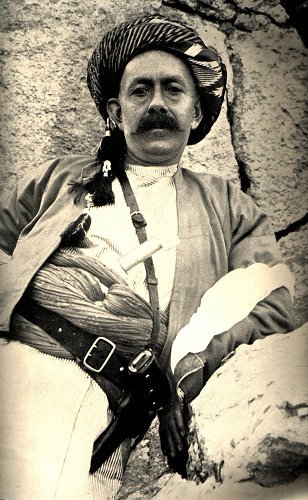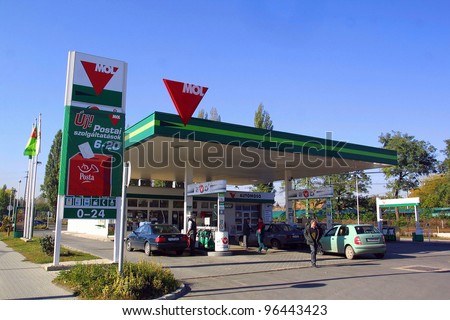KRG Prime Minister: Not a Single Penny from Kurdistan's Oil Revenue is Missing
ERBIL, Kurdistan Region – Speaking to the press this week, Nechirvan Barzani, the prime minister of the Kurdistan Regional Government (KRG), said that after the withdrawal of American forces from Iraq, a mechanism was agreed upon to organize the interaction between Peshmerga forces and the Iraqi Army.
That mechanism was established in order to prevent problems and increase cooperation, said PM Barzani, and was why Peshmerga forces stopped the recent advance of the Iraqi Army from Nasiriyah, of which they weren’t informed as required by the existing agreement.
“No doubt, whenever and wherever we need help from the Iraqi Army, we will ask in the same way Baghdad asked for assistance from Peshmerga forces in order to protect the Iraqi people in Baghdad,” Barzani said.
He added, “The Iraqi Army is the army of all and we will ask for its assistance whenever there is a security issue. But what happened recently was uncalled for and we did not know the rationale behind it.”
The prime minister said that the issue has been resolved and the army units will be returning to their bases.
Barzani confirmed that the foreign policy of Kurdistan is shaped by Baghdad as outlined by the Iraqi constitution. However, he said, "We have friendships with Iran and Turkey and visit these countries and are visited by them every now and then.”
The prime minister added, “We have our own views on strategic matters and never interfere in the internal issues of those countries. This is a matter of principal for us and we never interfere in the internal issues of Syria, Iran or Turkey.”
PM Barzani said that the Kurdish government has in the past helped people outside the borders of the Kurdistan Region to protect themselves.
“In 2003, we gave arms to people in the coastal region of Mosul in order for them to protect themselves,” he said.
The recent deployment of Iraqi troops to Syrian border areas came after comments from Kurdish President Massoud Barzani that Syrian Kurdish soldiers were being trained in the Kurdistan Region for self-defense.
“Today, we are worried about sudden changes in Syria that would threaten our people in that country,” the prime minister said. “If this happens, then we will train these people in order to protect themselves. Otherwise, we do not interfere in their issues."
The prime minister was asked about the recent visit of Turkish Foreign Minister Ahmet Davutoglu to Kurdistan. Davutoglu met with KRG President Massoud Barzani last week to discuss the situation in Syria. He also visited Kirkuk, a multiethnic and disputed area; he was the first Turkish foreign minister to do so in 75 years.
Prime Minister Barzani explained that Davutoglu visited through a visa issued by Iraq in his diplomatic passport, which does not restrict visits to any Iraqi provinces. "We perceive Kirkuk as one of the Iraqi provinces, such as Baghdad and Erbil,” he said. “Baghdad making an issue out of this is uncalled for. This is wrong.”
He added, “Why should they restrict his visit to Kirkuk? Kurds, Arabs, Turkmen, Assyrians and Chaldeans are all part of Kirkuk. When we visit Turkey, our visa does not tell us that we can only visit Istanbul or that it is forbidden to visit Diyarbakir. The KRG confirms that Davutoglu has not violated any diplomatic protocols between Iraq and Turkey. The visa was issued to Davutoglu by the Iraqi authorities and allowed him to visit everywhere in Iraq."
Barzani also addressed the ongoing tension between Baghdad and Erbil over oil, and the contracts the KRG has made with foreign companies.
"The claims repeatedly made by Baghdad are outdated and Kurdistan is certain that the oil contracts it has signed with foreign oil countries do not violate the Iraqi constitution,” he said, adding that large companies such as ExxonMobil and Chevron would not invest in Kurdistan without being sure of the legality.
According to the prime minister, the Iraqi constitution and laws are the way to solve these issues. “Waving threats does not solve the problem and Baghdad needs to show a serious commitment to holding talks with Kurdistan in order to solve this issue,” he said.
Barzani said that Kurdistan would continue oil exports once Baghdad released overdue payments to companies.
The prime minister said that he is accountable for his statements and that all KRG oil contracts are transparent and without any issues. He added that during the KRG's previous cabinet, former PM Barham Salih published everything and that no country has better transparency than Kurdistan.
"They ask whether the contracts are good or bad. I am ready to talk about this and say that our contracts are profit-sharing contracts because Kurdistan is not like the Arab Gulf states; it involves political and security risks to invest here. Hence profit-sharing contracts are more suitable and less expensive for us,” Barzani said.
The dispute between Baghdad and Erbil over oil revenues hit a peak in mid-July when Iraqi Prime Minister Nuri al-Maliki accused the KRG of “smuggling” oil by not turning revenues over to the central government, threatening to cut the region’s budget by billions of U.S. dollars to make up the difference.
“Regarding oil revenues and the claim that US$4 billion is missing, I confirm before all these cameras that not even a single penny is missing,” Barzani said.
He added that oil revenues do not amount to $4 billion, as claimed. The prime minister believes this number was reached because KRG Minister of Natural Resources Ashti Hawrami had told parliament that if the region signed all its oil contracts, its revenue would be $4 billion.
“This does not mean our revenues are currently $4 billion and the press must convey the correct information to the public,” Barzani said. “Oil revenue will not be added to Kurdistan’s budget because it would be subtracted from the budget in Baghdad if we did.”
He said that this money was spent on a big water project in Duhok, along with more than $200 million for the borders of Garmiyan and Halabja and a budget to provide housing for the relatives of Anfal victims, among other projects.
Barzani described future projects as well, including a Darbandikhan-Kalar road, an airport in Duhok and both a railway and highway connecting Duhok and Sulaimani. “These projects will be visible to the public,” he said, adding that a budget had also been allocated to build public schools.
Domestically, Barzani confirmed that the Kurdistan Democratic Party (KDP) and Patriotic Union of Kurdistan (PUK) have different perspectives but are united on the important issues.
He said, "We have met three times over the past two weeks in order to further unify our positions in the upcoming stages. I will be visiting His Excellency [Iraqi President] Jalal Talabani in the next few days in Berlin in order to discuss these issues and I am certain of a positive outcome to our meeting."
Barzani emphasized the importance of accord among Kurdistan’s political parties and its citizens, relying on the constitution as a social contract. "Political parties exist today that might not tomorrow. Therefore, an agreement of all the components of Kurdistan’s society is important.”
“The KRG does not have any red lines in this regard and is willing to listen to suggestions from all groups,” he added. “This will make the constitution richer."
The prime minister went on to discuss the importance of law implementation. "When a law or anything else is intended only for publicity, it is better not to do it at all,” he said.
“Sometimes, we need to prepare the ground for law implementation, which unfortunately does not always happen. We have spent a year and a half preparing to draft a law. Laws cannot be implemented merely by drafting them and passing them in parliament," said Barzani.
http://www.rudaw.net/english/kurds/5072.html






















 .
.




